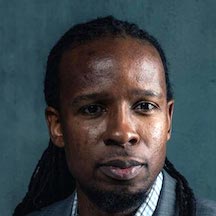 Ibram X. Kendi, one of the nation’s leading scholars and historians of racism, will join Boston University’s faculty on July 1 and launch the Boston University Center for Antiracist Research.
Ibram X. Kendi, one of the nation’s leading scholars and historians of racism, will join Boston University’s faculty on July 1 and launch the Boston University Center for Antiracist Research.
“My hope is that it becomes a premier research center for researchers and for practitioners to really solve these intractable racial problems of our time,” Dr. Kendi said. “Not only will the center seek to make that level of impact, but also work to transform how racial research is done.”
 In 2017, Dr. Kendi joined the faculty at American University in Washington, D.C. He held a joint appointment in the College of Arts and Sciences and the School of International Service. Dr. Kendi was also the founding director of the Anti-Racist Research and Policy Center at the university. Earlier, he served as an assistant professor of African American history at the University of Florida.
In 2017, Dr. Kendi joined the faculty at American University in Washington, D.C. He held a joint appointment in the College of Arts and Sciences and the School of International Service. Dr. Kendi was also the founding director of the Anti-Racist Research and Policy Center at the university. Earlier, he served as an assistant professor of African American history at the University of Florida.
Dr. Kendi won the National Book Award in the nonfiction category for his book Stamped From the Beginning: The Definitive History of Racist Ideas in America (Nation Books, 2016). He was the youngest person to win the National Book Award in the nonfiction category. Dr. Kendi’s latest book is How To Be an Antiracist (One World, 2019).
Dr. Kendi is a graduate of Florida A&M University, where he majored in journalism and African American studies. He earned a Ph.D. in African American studies at Temple University in Philadelphia.











Before people start bloviating about Ibram Kendi being hired at Boston University to start ANOTHER Anti-Racist Research and Policy Center at Boston University they need to ask as few questions: 1) Why did Ibram refused to defend a “native born Black American” male PhD student (Zack Mills) at American University who was academically and administratively attacked via his Department and even American University president Sylvia M. Burwell (@SylviaBurwell)? Read his story at https://www.insidehighered.com/news/2020/01/07/au-administrators-and-students-disagree-extent-racial-problems-campus, and 2) Why did Ibram refused to respond to Mr. Mills numerous inquires in an attempt to share his experience with him since Ibram was the “Founding Director of the Anti-Racism Policy Research Center at American University?
Moving forward, what I find very hypocritical about Ibram is that he has the Chutzpah to pontificate about American racism and in particular at higher education institutions, yet he FAILED to appropriately address explicit racism, disparate treatment, and even academic retaliation at American University. Now Ibram is off to Boston University to conduct himself in the same non-threatening manner all the while doing more of the same in Boston as he did at American University.
Thanks for sharing this. I enjoy reading Dr. Kendi’s scholarship but we should remember that many Black scholars eventually become die-hard capitalists whose primary goal is to strengthen their brand. Commodifying Black pain and suffering is a cottage industry. I see it at my own institution, where an anointed group of Black faculty have become administrative favorites while many Black students continue to struggle, and Black staff are underpaid.